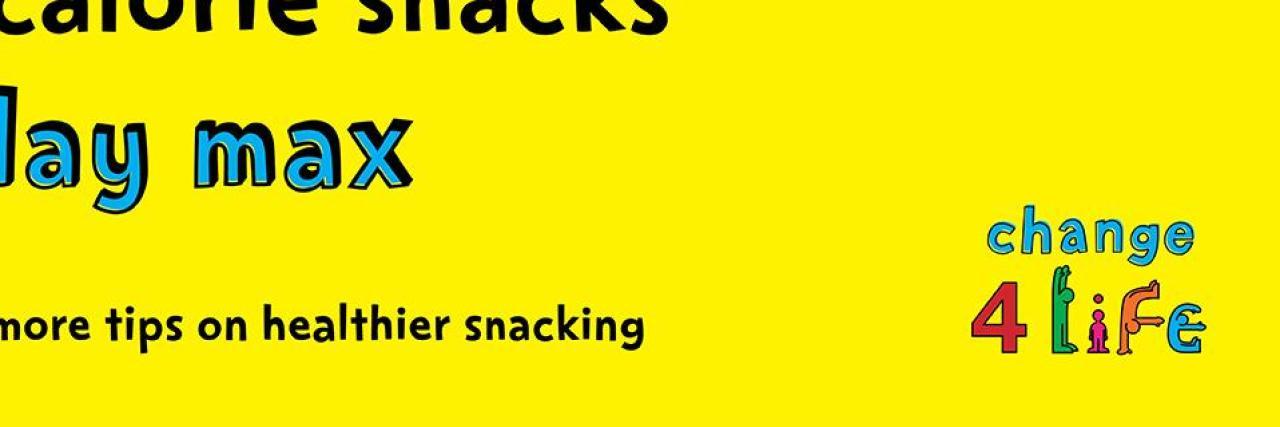In the U.K., there has recently been an advertisement on TV made by Change4Life, an organization that is part of Public Health England. The advert features a catchy tune and the statement that children should only have snacks that are 100 calories, and they should not have more than two of these per day. Their aim as an organization is to support people to make healthy changes in their lives in order to improve their overall health. They are also working to combat childhood obesity, which is a growing problem in this country that I think could very well be attributed to the rising levels of poverty.
I believe a lot of the things Change4Life does to improve the country’s health can be helpful, for example: the money-off vouchers that anyone can claim so they can afford to make choices to buy healthier snacks, and the website they have that has a lot of good information about exercise, diet, recipes, education on different food groups and suggestions for different meals and snacks.
But I do not agree with this Change4Life campaign. I completely understand the need for more measures to be put into place to tackle obesity, but I do not agree with the message the advertisement is conveying, whether it be intentional or not.
I still remember when my little sister was diagnosed with anorexia nervosa at the age of 11. She had been losing weight for a while and when my parents took her to the doctors and she got referred to CAMHS (Children and Adolescent Mental Health Services), we found out that for months she had been religiously counting and tracking calories, restricting her intake, throwing her food away when she was at school and when my parents weren’t looking, over-exercising in her room for hours on end, weighing herself obsessively and looking at herself completely different than how she really looked.
Eating disorders are cruel, relentless conditions. Eating disorders are not just wanting to be thin — they are mental torment every single day. Anorexia nervosa has the highest mortality rate out of all mental disorders, with research showing that 20 percent of anorexia patients die prematurely due to their illness. These rates are shocking, considering that in the UK roughly 1.25 million people struggle with an eating disorder. It is adverts and campaigns like this that contribute to diet culture and the rising rates of eating disorders.
I’m against this campaign for many reasons, but mostly because I saw my 11-year-old baby sister waste away for months on end because she believed she didn’t “deserve” to eat the food she should have been eating as an active and growing child, and because I could have lost her to anorexia. She was just a child when she developed this cruel illness, and she was the age these adverts are targeting.
I understand that childhood obesity in the U.K. is a growing problem that needs addressing; in 2015 and 2016, it was found that 1 in 5 reception children were either obese or overweight, and 1 in 3 year 6 students were classed as overweight or obese. However, I personally believe that by telling children they should have 100 calorie snacks only twice a day might teach them to count calories and restrict their intake, which could lead to children developing eating disorders, especially if, for whatever reason, they have a predisposition to developing one.
I am aware that the actual target audience for this advert is probably parents, not their children, but by using a catchy tune and playing these adverts during primetime TV and radio breaks, the campaign inevitably appeals to children, whether this was deliberate or not. I also do not think it was necessary to mention calories at all. Instead of including the number of calories that should be in a snack, they could have given examples of snacks that are the “correct calorie content” for a snack, and not included any numbers in the advert, particularly not as the main focus.
What would be better for the NHS and Public Health England to be doing is educating children on foods, and how some foods are “healthier” than others, but no food is “bad” for you as long as it is in moderation; and teaching children how to cook healthier meals and informing parents and caretakers of calorie contents rather than including them on adverts to be viewed by children.
I believe this advertisement could have a negative impact on some children. I understand that a lot of children probably won’t take any notice of the advert itself, but some children and young people who do take notice of it may be affected by the message and may feel they should start counting calories and restricting their diet, especially considering the low calorie content that is suggested for a snack (which I personally do not think is enough for children who are active and growing).
Considering the rising rates of mental illnesses and eating disorders, this advert could truly have a detrimental impact on a lot of people, and could even trigger thoughts and behaviors that could lead to the early development of an eating disorder.
If you or someone you know is struggling with an eating disorder, you can call the National Eating Disorders Association Helpline at 1-800-931-2237.
We want to hear your story. Become a Mighty contributor here.

